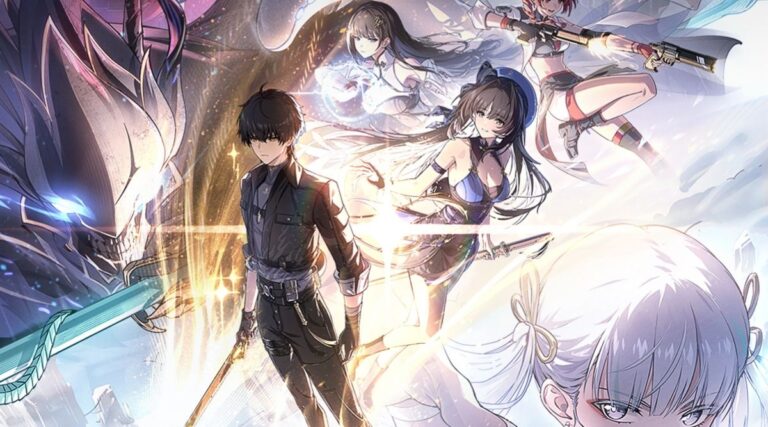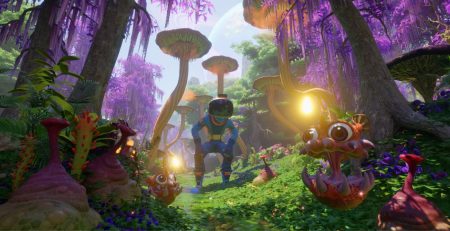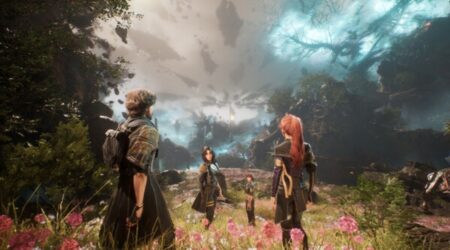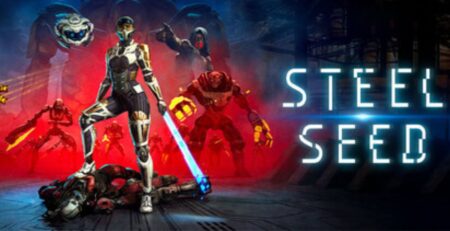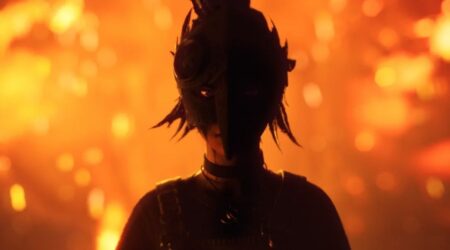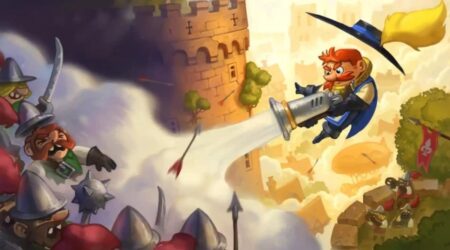Wuthering Waves, the new open-world RPG developed and published by Kuro Games, puts players in control of Rover, an amnesic Resonator (magical hero) who must gather their lost memories while staving off a coming disaster known as The Lament. Rover will discover an intriguing new world through combat, exploration, and puzzle-solving, aided by an ever-growing cast of characters. However, there will be more than a few bumps along the way.
The first element that Wuthering Waves hits players with is its story. With Rover waking with no memories about themself or the world, the first hour or two is a hard slog as the player is inundated with too much minutia concerning the world and the magical elements therein. Many disorienting new terms and concepts are bandied. Once the player gets through the opening orientation, the game dials back on much of the confusing jargon.
The awaiting narrative is a solid core story that is often poorly implemented. While the big moments in both the main story and side missions deliver some solid surprises and memorable elements, they are frequently surrounded by dialogue that feels like the writers were paid by the word. Every interaction takes five times as long as necessary. The rambling writing becomes the game’s most frustrating element. The overwrought script is also presented annoyingly on-screen. There are far too many grammatical errors. Rereading a sentence to translate its meaning when a scene has already run too long breaks many moments.
As if all that isn’t enough, playing the game on PC has an added problem. Dialogue appears in a small box at the bottom of the screen. If the dialogue runs past the edge of the box, and it often does, the box does not scroll with it. It just lets the words run off, cutting the dialogue off at the edge. I cannot find a way to move the window. While playing it on a mobile device one can drag the dialogue up with their finger to reveal the rest of the text. This problem makes numerous dialogue moments incomprehensible for PC players.

While we are talking about dialogue, let’s address the voice acting. While some characters manage to deliver their lines well, much of the acting is subpar. Rover’s voice is by far the worst offender. Regularly used as a narration device during puzzles, the actor sounds as bored with saying their lines as the player swiftly becomes hearing them. The monotone delivery sucks the energy out of the game every time it is heard.
On the opposite end of the spectrum is the early antagonist, Scar. The maniacal villain chews the scenery hard. One of the biggest mysteries in the game is how he fails to comprehend why Rover refuses to trust him. No well-intentioned individual has ever spoken with as much snarling deceit as he. Scar could tell you something you factually know is true and on instinct, you’d start doubting it. While the performance succeeds in being memorable, it’s not for the right reasons. His obnoxious overacting hurts his key scenes.
From a visual standpoint, the locales that fill Rover’s journey are bright and vibrant. With a fusion of futuristic design and fantasy aesthetic, the game’s central city is always a joy to return to. Surrounding it are well-crafted mountains, fields, and other unique environments ripe with discovery. There are lots of small puzzles to solve and enemies to defeat as the player traverses the world.
The best part of Wuthering Waves’ world is how lived in it feels. Abandoned ruins, enemy encampments, and other locations all feel woven into the backstory of the world. You rarely find elements that feel completely out of place as you travel through the game.

Just as the visual design of the world delivers memorable elements, so too do the character designs. Notable personalities are decked out in intricate fashions, making them always stand out. And while NPCs are plainer in appearance, they all feel functional for the role each plays. Guards, shopkeepers, and delivery personnel all look their parts. The player can always instantly understand with whom they are dealing.
The only shortcoming of Wuthering Waves on the visual side comes from a significant technical problem. Namely, a tendency to not load textures. Most commonly occurring on NPCs, though anything up to entire buildings can suffer from it, the failure to load textures causes the given visual element to just appear as a blurry shape. It’s frustrating. I had one protracted side mission continually marred by a pair of NPCs that suffered from this for 90% of the mission. While this problem is extensive, it is important to note it never happens to the player’s party or the critical story characters.
While there has been more bad than good thus far, one place where Wuthering Waves almost universally succeeds is in its gameplay. Simple and fun, the delivers players a lot of options while never overwhelming them. Most of the time, the player’s party consists of three characters that can be swapped out on the fly. With characters having various abilities, weapons, and elemental types, there is plenty of opportunity to mix and match just based on these expected aspects alone.
However, the game also introduces players to a monster collecting system. Capturing and equipping monsters to the player’s party members augments stats. It also grants the characters access to another ability. Abilities take the form of either a brief summons where the monster attacks enemies or a brief transformation where the character becomes the monster. These transformations are fun and often yield significant damage. And while all this sounds like a lot to keep track of, the game allows players to auto-assign equipment and monsters, so you don’t have to worry about it if you don’t want to.

The actual moment-to-moment fighting is classic third-person action. With light and heavy attacks, specials that mostly run on cooldowns, and dodge and parries for defense, Wuthering Waves doesn’t try to reinvent any wheels with its gameplay. Rather it focuses on fun and style as the player bounces between their characters taking enemies to task.
While the overall gameplay experience is fun, it does falter sometimes when it strays from its core formula. One-off events try to break up the gameplay with mixed results. While they are different, they generally feel half-baked. This results in sloppy execution that doesn’t come close to the core game’s fun. Happily, these moments are brief and the game tends to air on the easy side so the player isn’t typically caught replaying an element that doesn’t come together.
The final element that must be brought up is Wuthering Waves‘ microtransactions. Using the familiar gacha mechanics of many similar games as service, the player’s primary mode of acquiring new weapons and characters is through random pulls from loot boxes. The game gives the player a significant amount of in-game currency to try for characters with, so there isn’t a ton of pressure to purchase.
I spent all my time with only the main character and easier to get four-star characters in my party. I never had trouble keeping up with the game’s challenges. Whether or not that will change as players plunge deeper into the game’s continuing story is unknown, but for now, the game feels extremely free-to-play friendly.
While Wuthering Waves delivers some strong story moments and fun gameplay within its interesting world, it has a lot of problems.
Wuthering Waves is available now on PC, Android, and iOS.
Wuthering Waves
-
Rating - 5/105/10
TL;DR
While Wuthering Waves delivers some strong story moments and fun gameplay within its interesting world, it has a lot of problems.

